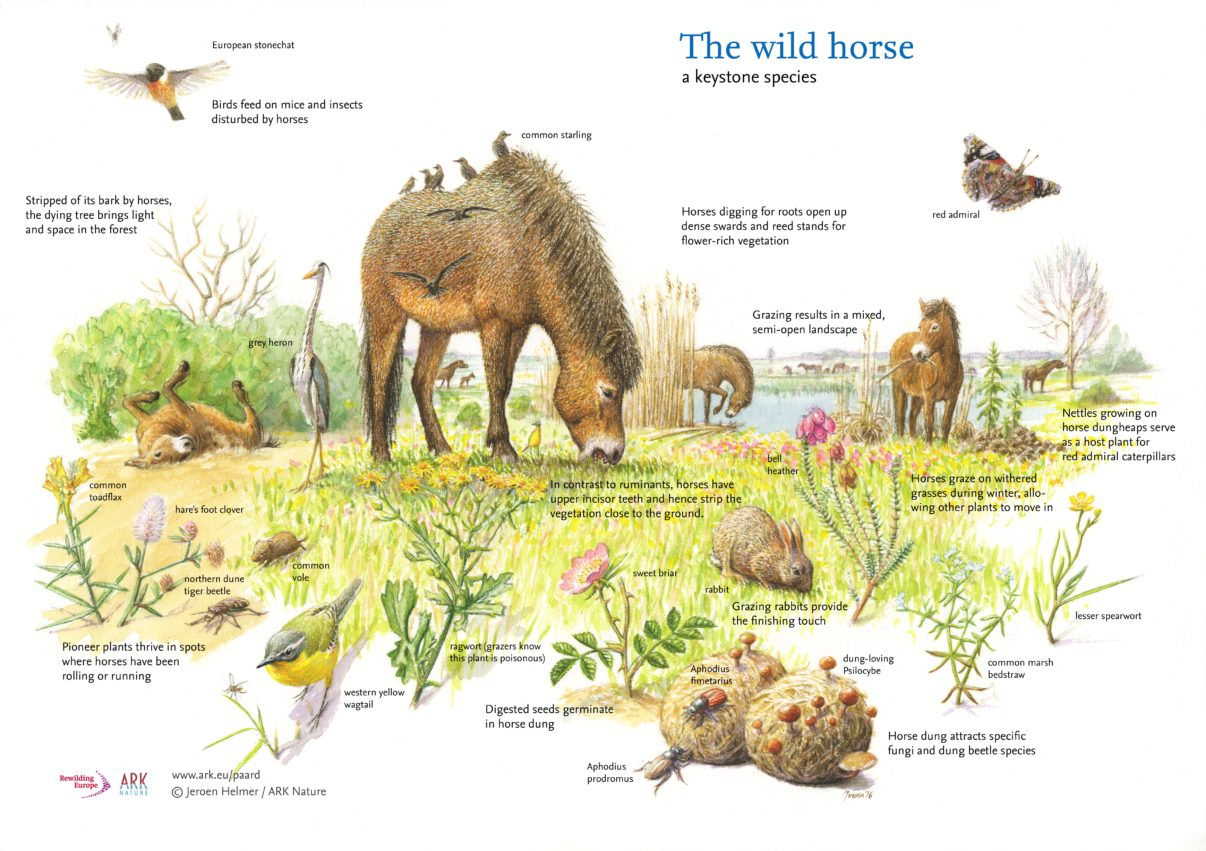Climate change is increasing the incidence of catastrophic wildfire, particularly in southern Europe. In Portugal’s Serra da Estrela National Park, where wildfire ravaged around 30,000 hectares of the landscape this summer, enhancing natural grazing could help to create a more biodiverse and fire resilient landscape.
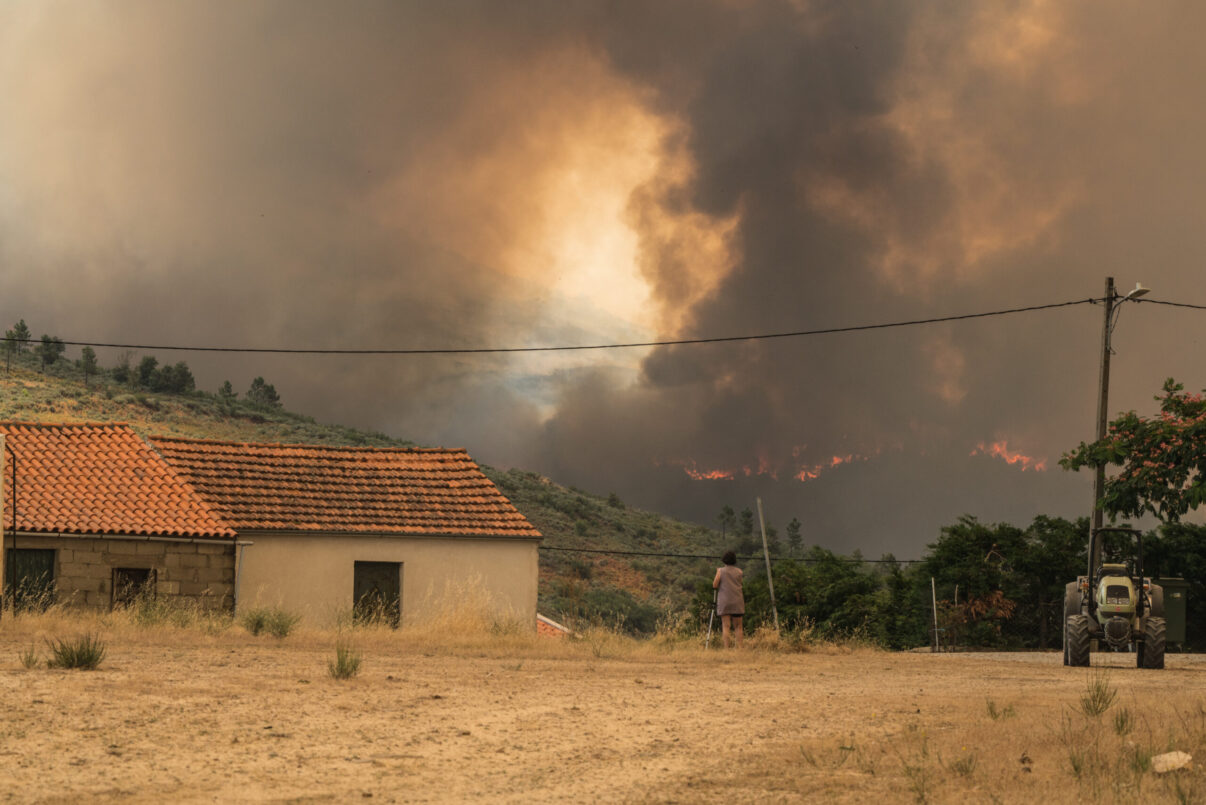
Europe on fire
This summer Europe has been ravaged by record-breaking outbreaks of catastrophic wildfire, with the continent baking in temperatures exceeding 40 degrees for weeks at a time. Many of these fires have seriously damaged protected areas. As climate change plays out, the huge ecological, economic and existential challenge pose by such outbreaks will only get worse – particularly in countries around the Mediterranean.
The experience in Portugal’s Serra da Estrela Natural Park typifies the scale of the problem. By the end of August, summertime wildfire outbreaks had burned around 30,000 hectares of this precious UNESCO World Heritage site, leading the Portuguese government to declare a “State of Calamity” in the area. The fires were of unprecedented severity and have had a hugely negative impact on the park’s landscapes and wildlife. Recent heavy rain has compounded the damage by washing away large quantities of topsoil from mountain slopes.
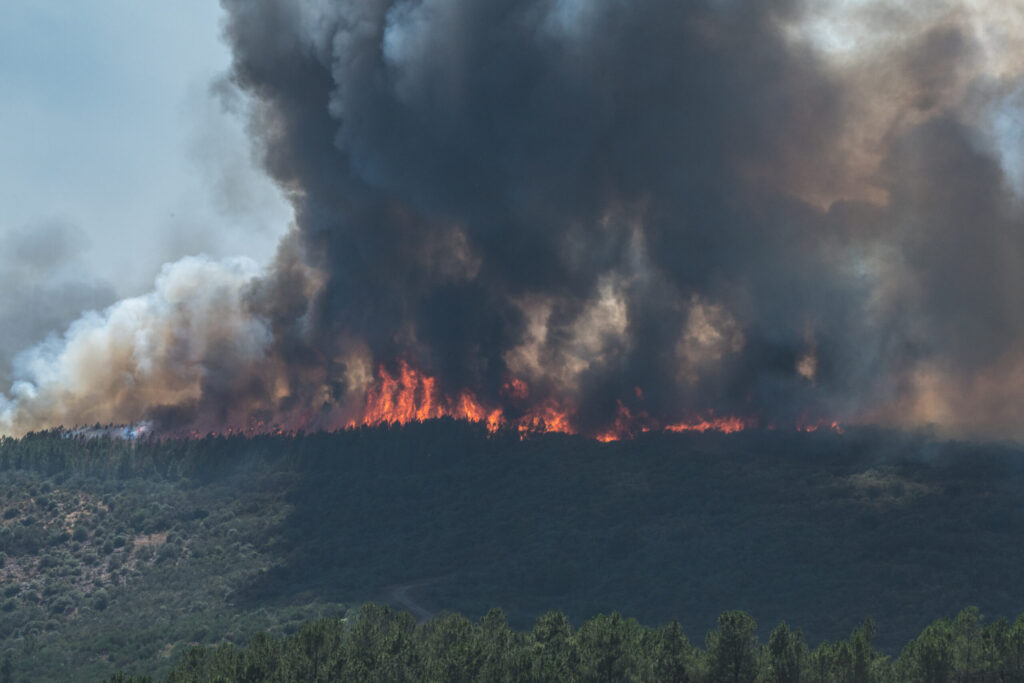
Doing things differently
So how can this burning issue be addressed? Reintroducing wild horses and Tauros was recently put forward by Rewilding Portugal as one way of helping Serra da Estrela become more resilient to wildfire, more ecologically functional, and richer in wildlife.
After the fire was extinguished, the team sent a proposal to key players in the territory – including all the municipal councils of Serra da Estrela, the ICNF (the Institute for Nature Conservation and Forests) and APA (the Portuguese Environment Agency) – advocating a package of urgent ecological restoration measures for the park. In addition to enhancing natural grazing, these included cutting dead wood to construct erosion prevention structures, planting emergency seedbeds to prevent soil erosion and support surviving fauna, intervening in affected watercourses to stimulate the growth of riparian vegetation and accelerate ecosystem recovery, and constructing small ponds and areas of flooding to improve the capture of water in the landscape prevent future wildfires. Since then the team has met with various authorities to discuss these ideas further.
“In the aftermath of this catastrophe there is now an opportunity to learn and do things differently,” says Pedro Prata, team leader of Rewilding Portugal. “There is an urgent need to change the way the park is managed, because the current management regime isn’t working. It’s not conserving and enhancing biodiversity, and it clearly isn’t minimising wildfire risk. We would like to see Serra da Estrela restored and managed in line with rewilding principles, although there is considerable resistance to this.”
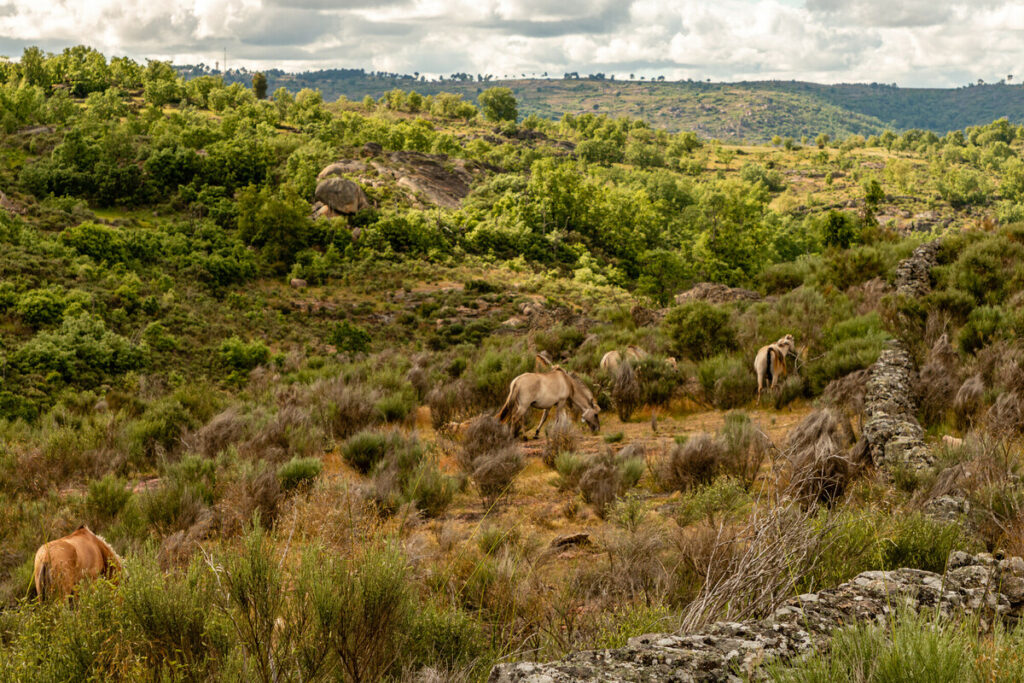
A proven solution
There is no single measure that can prevent catastrophic wildfire breaking out again in Serra da Estrela, or in any of the other fire-prone landscapes across southern Europe. But rewilding and natural grazers can both support prevention and can help fire-damaged areas recover more quickly and significantly boost their wildfire resilience and biodiversity at the same time.
As a key component of rewilding, the impact of reintroducing free-roaming herbivores such as wild horses and European bison has already been proven. In the Faia Brava Reserve in Portugal’s Greater Côa Valley, for example, where 45 Garrano horses have been released since 2006, as well as number of Tauros, there have been no serious wildfire outbreaks since 2005. The animals not only help to reduce flammable vegetation and create natural firebreaks, but increase biodiversity by opening up the landscape. The Rewilding Portugal team is also closely monitoring fire-prone landscapes across the valley and enhancing natural grazing in a growing number of other rewilding sites using Sorraia horses.
Where appropriate, creating conditions for populations of wild herbivores to recolonise areas of their own accord can also be effective. As outlined in the new and updated Wildlife Comeback Report, many of Europe’s wild herbivore populations are gradually recovering after decades of decline. This recovery now needs to be better supported.
A history of decline
In the past, Serra da Estrela Natural Park – which extends across 88,000 hectares and is one of the largest protected area in Portugal – supported healthy populations of herbivores such as red deer and roe deer. These have now largely disappeared.
“My home village is in Serra da Estrela and I have witnessed the park degrading over the last 40 years,” says Pedro Prata. “These days there is pretty much no natural grazing at all, which means combustible vegetation is building up and increasing the risk of wildfire. And the fact that there are no herbivores means the food source for animals such as wolves and vultures is also gone, so these species have disappeared too. From a wildlife watching perspective, there are actually far more interesting areas outside the park.”
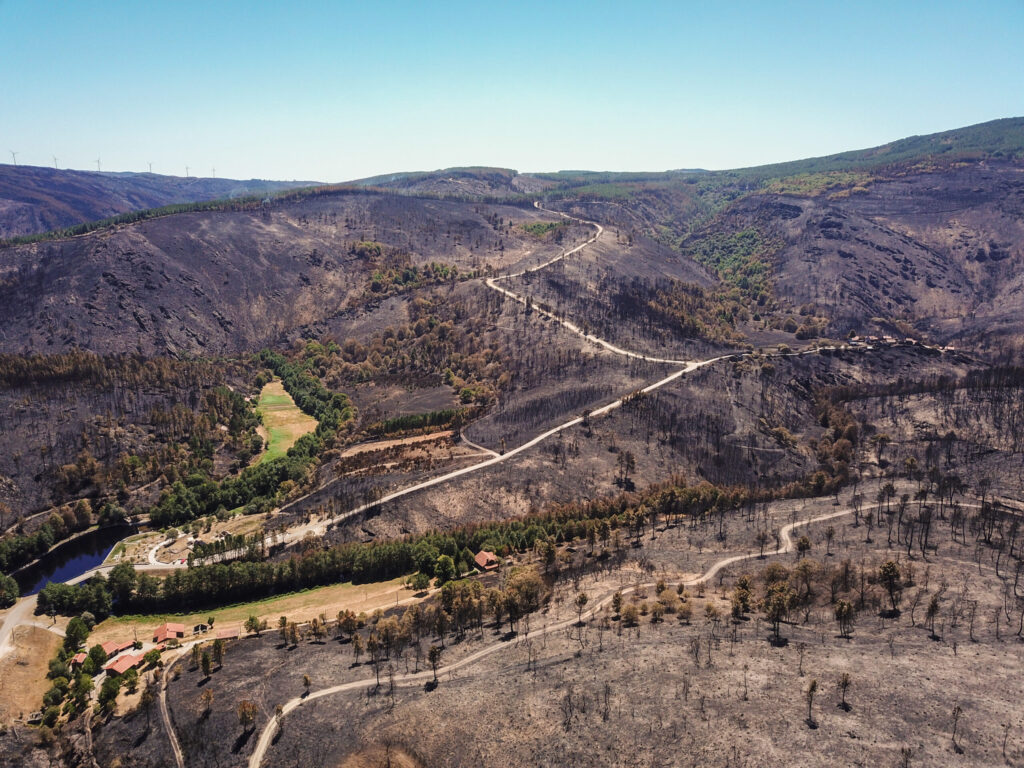
The bigger picture
Rewilding Serra da Estrela Natural Park by enhancing natural grazing and carrying out other efforts to support nature recovery would not only mitigate the risk of wildfire and boost biodiversity, but also increase the socio-economic value of the park. The Rewilding Portugal team are now hoping that park authorities will agree to a natural grazing pilot.
Resistance to reintroducing wild herbivores as a means of mitigating fire risk is not unique to Serra da Estrela. In many parts of Europe, local authorities are now spending huge sums bolstering their conventional firefighting capacity. They are also subsidising grazing with sheep, which has proven highly ineffective as a means of mitigating wildfire risk.
Rewilding using free-roaming large grazers is a far cheaper and potentially more effective way of preventing wildfire outbreaks from occurring, and reducing their impact when they do. For hundreds of thousands of years, large herbivores offered natural protection against catastrophic wildfire across the European landscape. Inside and outside Europe’s protected areas, they could and should reprise that role.

